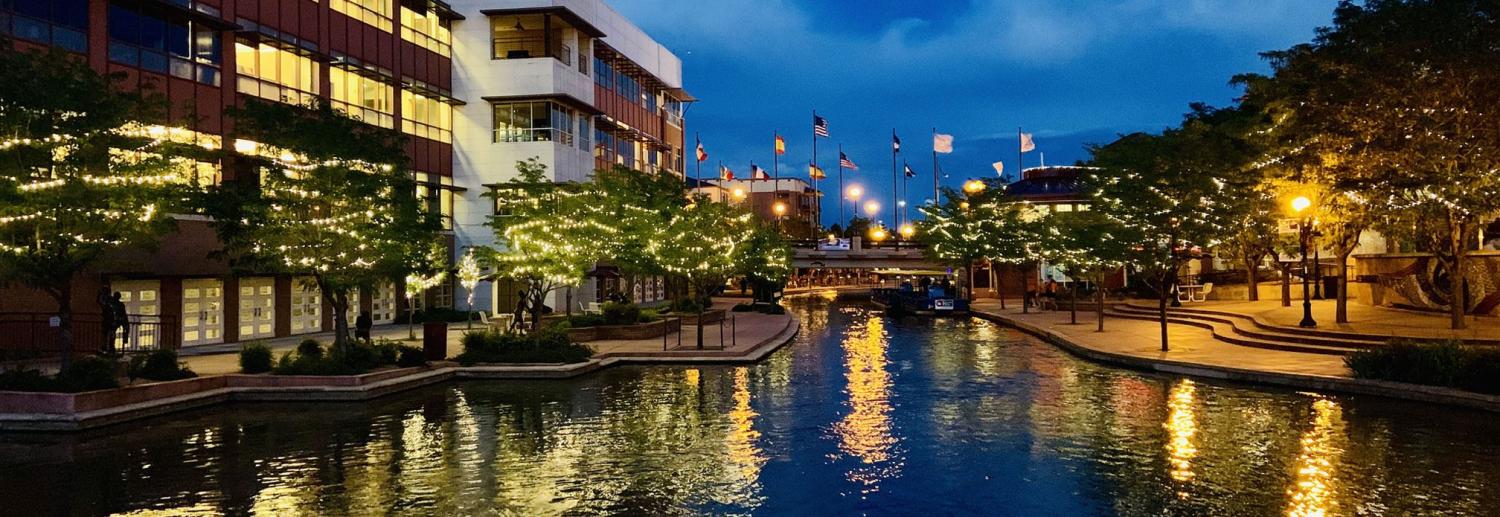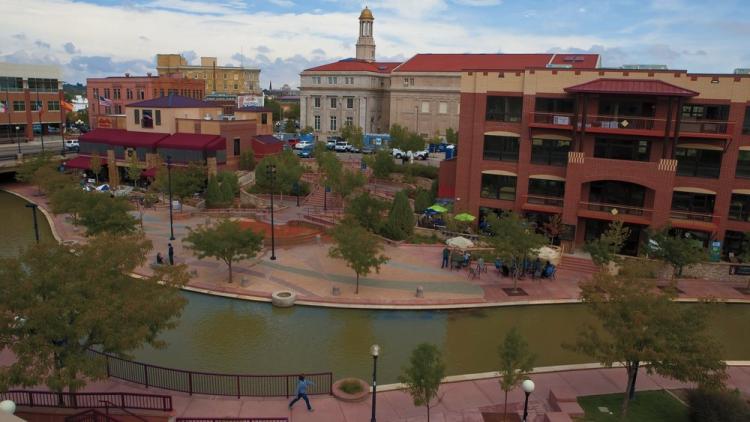Soundscapes of the People: A Musical Ethnography of Pueblo, Colorado

Photo: Pradeep Diska
The CU Boulder American Music Research Center (AMRC) is conducting a comprehensive study of the music and music making of Pueblo, Colorado, and the surrounding county. Led by former AMRC Director Susan Thomas—along with Austin Okigbo and Xóchitl Chávez—the project documents the music and culture of the city of Pueblo, Colorado, and its immediate vicinity. Researchers will interview community members who are current and past participants in musical activities and will create a digital archive of interviews and performances that will be accessible to the general public through the University of Colorado Libraries. The project is also partnering with the Latino History Project and K-12 educators to create educational and curricular materials.
For inquiries on interview or project status, please contact pueblo.soundscapes@colorado.edu.
Our commitment
We are actively advancing the University of Colorado’s commitment to building diversity, inclusivity, and equity by sharing the diverse histories, experiences, and perspectives of American musicians broadly, through thoughtful research and promotion, community programming, and archived music collections. The Soundscapes of the People research initiative is a response to these core values. In collaboration with communities who have been traditionally underrepresented in music studies, this initiative aims to document and preserve unique stories and sounds from Southern Colorado and the Borderlands region. Through its diverse labor force and rapid industrial expansion in the late 19th and early 20th century, Pueblo had an integral role in establishing the American West. This project examines the city’s social and labor history as experienced through music and sound and also follows musicians and their music into the present as the city transitions into a post-industrial future.
Pueblo’s role in shaping narratives of the American West
Pueblo’s story is integrally tied to the nation’s. The city can be thought of as occupying a double “borderland,” both between North and South--as it once stood on the U.S. border with Mexico--and between East and West--the “rails and nails” produced at the city’s steel mill and the region’s quite literally provided the key to open Colorado’s Gateway to the West. Pueblo’s industrialization and the importance of the Colorado Fuel and Iron steel plant made the city a beacon of 20th-century modernism and also a draw for waves of immigrants from Europe, the eastern United States, surrounding rural areas, and Mexico and Central America. Pueblo is surrounded by quality farmland and the city’s economy and culture are marked by both industrial and agricultural labor and the struggles of workers to secure and retain their rights. In spite of the region’s centrality in the U.S.’s economic, geographic, and military development and its role in shaping narratives of the American West, Pueblo’s own cultural history and its contributions have largely been lost and overlooked. Looking to music as a tool for community building and activism, and as the soundscape for Pueblo’s experiences of industrialization and cosmopolitanism as well as economic decline and isolation, this project aims to shed light on the role of music in shaping the city in the past, helps us to better understand the present, and suggests new paths for the future.
Funding + support
The AMRC’s Soundscapes project is made possible in part through support from a CU Boulder Research and Innovation Seed Grant, the CU Boulder Undergraduate Research Opportunities Program, and an Outreach Award from the CU Boulder Office for Public and Community-Engaged Scholarship; the Soundscapes project is also a 2022 recipient of the National Endowment for the Humanities Archeological and Ethnographic Field Research Grant with $248,000 total support to date (2021-2024).
Community + university leaders of the Soundscapes project
The AMRC is proud to have earned the collaboration and support of community, university, and thought leaders, including
- Nicholas A. Gradisar, Mayor of Pueblo
- Dennis E. Flores, Pueblo City Council President
- Pueblo City Council
- Garrison M. Ortiz, Chair of the Board of Pueblo County Commissioners
- Patricia A Erjavec, President of Pueblo Community College
- Steven Trujillo, President & Chief Executive Officer of the Latino Chamber of Commerce of Pueblo
- Jason Romero, Jr., Director of the Latino History Project
- Robert H. McDonald, Dean of University Libraries and Sr. Vice-Provost of Online Education at CU Boulder
- Brenda M. Romero, Professor Emeritus of Musicology, CU Boulder
- Patricia Limerick, Director, Center of the American West, CU Boulder
- Estevan Rael-Galvez, CEO and President, Creative Strategies 360°
The AMRC invites you to support this exciting project by making a donation.
Support the project

Contribute
The AMRC invites you to support Soundscapes by making a donation.

Soundscapes in the news
“Song of Pueblo” on PBS (2025): The “Song of Pueblo”—a sweeping oratorio that portrays the history of southern Colorado—is available for streaming on PBS. Renowned composer Daniel Valdez is the creative force behind this compelling composition, orchestrated by alumni Max Wolpert and Ilan Blanck and featuring a collaboration of the CU Boulder Chamber Orchestra and the El Pueblo Ensemble.
The Song of Pueblo project represents more than preserving history: on resiliency, values (Pueblo Star Journal, Aug. 16, 2024)
“Song of Pueblo” performance recording: On Oct. 26, 2023, the AMRC, CU Boulder Chamber Orchestra and El Pueblo Ensemble collaborated to present a live-streamed multimedia performance of “Song of Pueblo,” a sweeping oratorio that portrays the history of southern Colorado. Relive this unique and memorable experience.
CU study on Pueblo's cultural music has collected 27 oral histories so far (Pueblo Chieftan, Sept. 2022)
Video: ‘Soundscapes of the People’ explores Pueblo’s history through music (CU Boulder Today, Sept. 2022)
NEH grant helps research Pueblo, Colorado’s music history (UC Riverside News, May 2022)
Soundscapes of the People: CU project looks to preserve southern Colorado music (9News, Oct. 2021)


